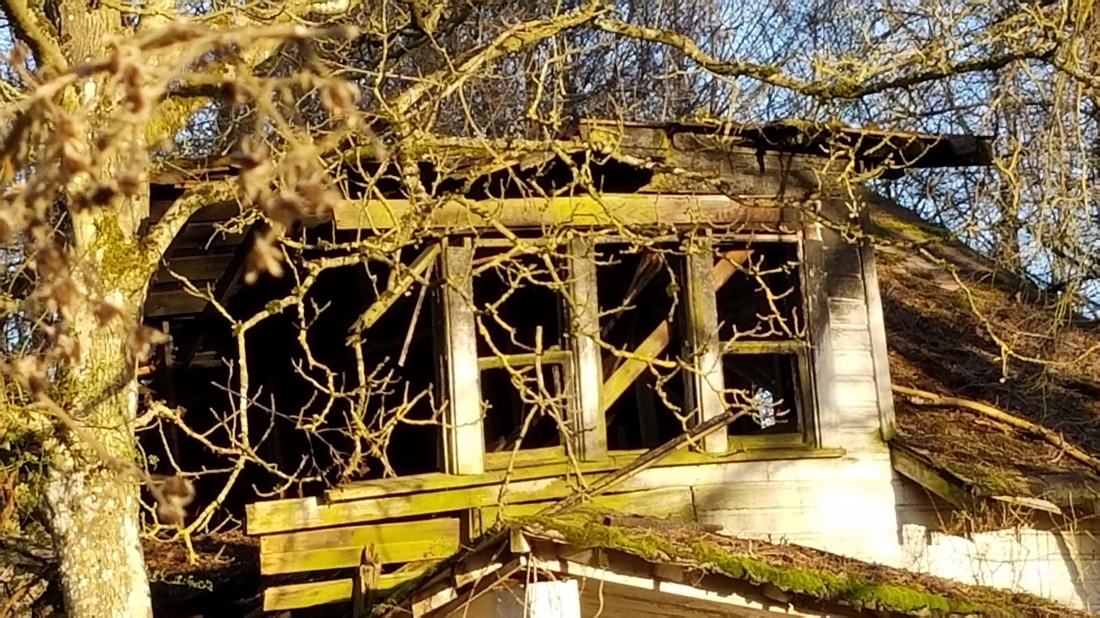|
"We've got the family covered if you croak, Dad," one of my sons told me a few days ago, flashing his phone calculator in my face, showing what he and his brother could earn every month if they quit school and went to work full time. Nothing quite so comforting as knowing that I could die and the family would be just fine.
I think it was his response to a grieving friend and his personal awareness of mortality. I well remember my own fear of death as a boy staying with a great-grandmother—a fear that she might not wake up from her afternoon nap--and throughout childhood, that closer fear that dad or mom could die and I'd be bereft of the love and security that was the center of my universe. During the three terrible days following Jesus' crucifixion, the disciples could see only that the cross was the hideous weapon of Satan. From their vantage point in their darkness and grief, they assumed that evil had triumphed, that death had won the day. They could not hear that Jesus' cry, "It is finished," was the first note in an anthem of triumph. For all the world it sounded like the final note in a dirge of defeat. Jonathan Edwards observes, "Christ came into the world to destroy the works of the devil. And this was the very thing that did it, viz [namely], the blood and death of Christ. The cross was the devil's own weapon; and with this weapon he was overthrown, as David cut off Goliath's head with his own sword." Satan rushed at Jesus with the cross as Jesus Himself reached out to take it, so that with it He might deliver the death blow to the enemy. But in those three dark days, the disciples didn't understand. Unlike my son, they knew that they couldn't go on, they couldn't support the newly-fledged family of God if Jesus was dead. So they mourned Jesus, but more (and as is so often the case with death) they mourned for themselves. As two of them told the unknown Jesus on the road to Emmaus, "...we had hoped that He was the one to redeem Israel" (Luke 24:21). The death of Jesus killed their hopes. No Redeemer meant no redemption. They couldn't do this thing on their own. So they waited—waited without knowing what they were waiting for. They were immobilized by grief, captive to their own shame, and blinded by their ignorance. They waited without having anything worth waiting for. They just waited. Then came Sunday morning. It was early, and some of their women arrived to care for Jesus' body with spices they had prepared. The massive stone that blocked the entrance to the tomb was mysteriously rolled back and when they looked inside, there was no mangled, bloodied body. Instead, two men in dazzling apparel stood and asked, "Why do you seek the living among the dead?" The womens' minds must have whirled as the angels announced Jesus resurrection: "He is not here, but has risen." The women told the other disciples, but to them it seemed like an "idle tale." These were just grief-stricken women with overtaxed minds and shattered emotions. They were seeing things. It was no figment of imagination. Jesus "presented Himself alive after His suffering by many proofs, appearing to them during forty days and speaking about the kingdom of God" (Acts 1:3). During the days following His resurrection, Jesus commanded his disciples to go and make more disciples of all nations. To say it another way, "Carry on." And then Jesus ascended to heaven. Things were bad after Jesus died. He was gone and life seemed useless. After the ascension, the disciples experienced no such uncertainty. That's because Jesus said something else: "Behold, I am with you always, to the end of the age." You aren't going to do this thing alone. You aren't left to care for the family with your impossibly small resources. Wherever you go, as long as you go—I Myself will go with you. Because Jesus is alive, we have hope. Because Jesus goes with us, we have confidence. We have the work of the kingdom to do, but we don't do it alone. The Lord who wrested victory from the grave--the Master who turned the enemy's weapon against him and with it crushed him--this God goes with us forever. We'll never have to support the family on our own. "...He has said, 'I will never leave you nor forsake you'" (Hebrews 13:5). Working together with such a King, our kingdom work cannot fail. It may mean a cross—and for many it has—but that which is meant for evil by our foe is designed by God for good. "In all these things we are more than conquerors through Him who loved us." Nothing is "able to separate us from the love of God in Christ Jesus our Lord" (Romans 8:37-39). He's got us covered. © Copyright April 2017 by Robert G. Robbins
0 Comments
"Our Father in heaven, hallowed be Your name. Your kingdom come, Your will be done, on earth as it is in heaven." The premise for all our praying is God's name, God's kingdom, God's will. We bring all our needs and ask Him for daily bread, forgiveness, guidance, and deliverance—but all within this prescribed framework. Apart from first centering on God, our praying is sure to run amok—we'll naturally pray for all the things that will build our reputation, that will establish us as potentates of our our own little kingdoms, that will ensure that we get whatever we want. Our center of gravity is always self—unless we deliberately subject our selves to God. We wonder why we don't get what we ask... James answers the question with brutal clarity: "You ask and do not receive, because you ask wrongly, to spend it on your passions." James goes on to call people who act and pray selfishly "adulterous people." To say it another way, when we center on ourselves—when we pray to advance our own kingdom—we are having an affair with the world. God isn't waiting for us to like ourselves or despise ourselves. He doesn't plead for us to help ourselves or to forgive ourselves. What He wants is for us to forget ourselves. It's not that we stop being who we are. It's not that we have some out-of-the-body experience in which we transcend mortality. We still see through our own eyes; its just that we're not the center of our attention anymore. We still have needs; it's just that our needs are now a part of the great kingdom work that God is doing. We're involved, but we're not the center. We're used, but our lives are not the measure of success. We're lost in the greatness of the God who is better. Self-centeredness is one of the greatest hindrances to actually seeing God. James' analysis cuts deeply: "What causes quarrels and what causes fights among you? Is it not this, that your passions are at war within you?" To say it another way, the war in our hearts finds its way into every relationship we have. The thing that most consistently stands between us and God is not the Devil. The thing that most regularly separates us from those we love is not distance. It's ourselves. We are in many ways, our own worst enemies. In standing up for ourselves, in protecting our interests, we alienate ourselves from our greatest good. When I was a boy, my best friend and I got into a heated argument about something I've long since forgotten. I was mad and felt that he was just looking out for himself. I backed him up against a huge oak tree in front of our garage and spat out James' words that I had committed to memory: "What is the source of quarrels and conflicts ... is it not your lust!!!" And those very words, intended for him, illuminated the darkness of my own selfishness. I haven't had a verbal fight quite like that recently—but I find that I'm still wrestling with the same monster of self-centeredness—often in "sophisticated" ways.
Our troubles generally boil down to being concerned about our reputations, our kingdoms, what we want. In that world-view, of course we have to scrabble for our daily bread, and forgive ourselves, and deliver ourselves from evil. But the kingdom and the power and the glory all belong to God. That's liberation—freedom from the long shadow of our own failed attempts at sovereignty—freedom to seek a better kingdom under a better King—freedom to enjoy the beneficent reign of God's grace.
Postscript: The ramshackle skeleton of a house just down the road from our place reminds me of the nature of seeking my kingdom. Laboring and worrying about building and protecting my kingdom really is no better than standing guard over a decaying ruin—when I'm offered a chance to work together with the King in a kingdom of glory that will last forever. Too often I see too much of my own shadow and too little of the transforming light of the Invisible God. © Copyright April 2017 by Robert G. Robbins |
Archives
October 2017
|




 RSS Feed
RSS Feed